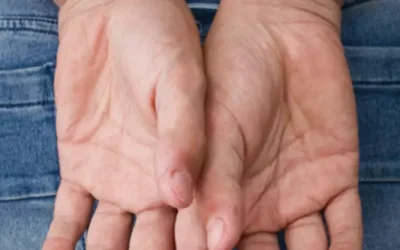Content
Alcohol thins your blood by slowing the normal action of fibrin, a molecule that builds blood clots. For this reason, people who use alcohol may find that they bleed more easily and for longer periods. Bruising may also occur more easily while using alcohol because it thins the blood.
- Alcohol use should be limited while on Plavix, and specific cases should be discussed with a doctor.
- Yes, alcohol increases heart rate as well as raise blood pressure during the initial stages of intoxication.
- A 2016 review suggests that significant daily alcohol consumption increases the activity of platelets.
- Binge drinking and heavy drinking, on the other hand, can increase the risk of excessive bleeding and hemorrhagic stroke, even when not drinking.
- The treatment of alcohol dependency involves a variety of different methods.
- While supplements and homeopathic medicines may be labeled “natural,” they can still potentially have serious side effects or cause an allergic reaction.
For example, if you are drinking alcohol, make sure your doctor knows. Tell them about any medications you are taking and if there are any symptoms that you have experienced that may be related to those medications or your condition. You should also let them know if any lifestyle changes in the last several months affected the treatment plan. While supplements and homeopathic medicines may be labeled “natural,” they can still potentially have serious side effects or cause an allergic reaction. Taking these substances while also taking prescription blood thinners can increase your risk of bleeding. Doctors rarely prescribe antiplatelet drugs to people who already have blood clots.
Alcohol can also affect the production of certain proteins involved in blood clotting.
This literature review is the foundation of the current alcohol consumption guidelines. Drugwatch partners with Physicians’ Review Network Inc. to enlist specialists. PRN is a nationally recognized leader in providing independent medical reviews.
Of all the blood thinners available today, warfarin is most strongly affected by excessive alcohol consumption. However, moderate consumption doesn’t significantly affect the metabolism of warfarin. Anticoagulants target clotting factors and disrupt them, slowing the body’s process of making clots. Antiplatelet drugs keep platelets from clumping together, preventing a clot from forming.
Nosebleeds & Surgical Complications
Warfarin is usually well tolerated and inexpensive, but you must monitor how thin your blood is with frequent lab work. Some foods also decrease its effectiveness, so it’s important to keep your diet consistent. New oral https://ecosoberhouse.com/ anticoagulants, or NOACs, don’t require regular blood work or diet management. However, they can’t be taken with certain heart valve problems. Regular blood tests are not needed for some of the newer blood thinners.

AHRQ’s Impact Case Studies highlight healthcare improvement through use of our toolkits. Call your doctor and go to the hospital immediately if you have had a fall or hit your head, even if you are not bleeding. For example, if you fall and hit your head, bleeding can occur inside your skull. Or, if you hurt your arm during a fall and then notice a large purple bruise, this means you are bleeding under your skin. Tell all your doctors about every medication and over-the-counter product that you take. A pillbox with a slot for each day may help you keep track of your medicines.
Most popular in Drugs
Diuretics can lead to dehydration, which is dangerous when you’re on blood thinners because dehydration can significantly increase the risk of bleeding. Mixing alcohol and Coumadin is known to affect how Coumadin works in your body. It can make Coumadin more active and increase the risk of bleeding. It can also affect your blood levels and cause incorrect doses of Coumadin to be prescribed. You should avoid mixing Coumadin and alcohol unless your doctor says that it is OK. Mixing Naproxen and alcohol increases the risk of damage to the stomach lining and makes internal bleeding and stomach ulcers more likely to develop.

Generally, these medical conditions can cause blood clots and anticoagulant medications increase your risk of bleeding. Patients taking blood thinners to treat heart disease often also take medications, such as Praluent, Repatha, Welchol, Colestid, and Livalo which help to reduce cholesterol levels. As a side effect statins can reduce the level of platelets in your blood, blood thinners and alcohol suggesting these drugs might also act as mild anticoagulants. Blood thinners limit coagulation, which prevents blood clots from forming. While blood thinners don’t actually thin or change the viscosity of blood, their ability to prevent clotting can help protect people from strokes and heart attacks. It can also make it more difficult for the body to form a blood clot.
Your medication, $49 per month
The doctor needs to know about all your medicines, including medicines you used before you started taking a blood thinner. For example, some blood thinners need to be taken at the same time of day, every day. If your health benefits include Express Scripts® Pharmacy, you can reach out to our specially trained pharmacists 24/7. They can answer all of your medication questions and advise you on whether any ingredients in your current medications can interact with alcohol or anything else.

